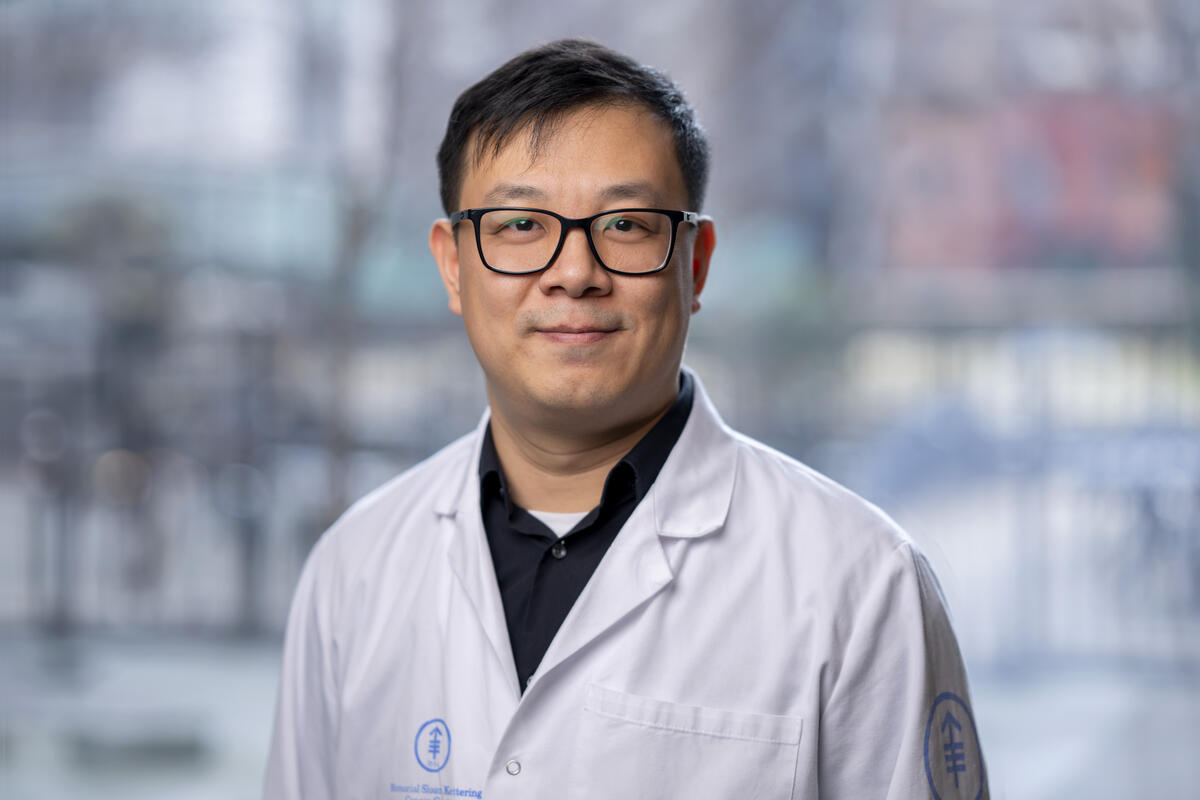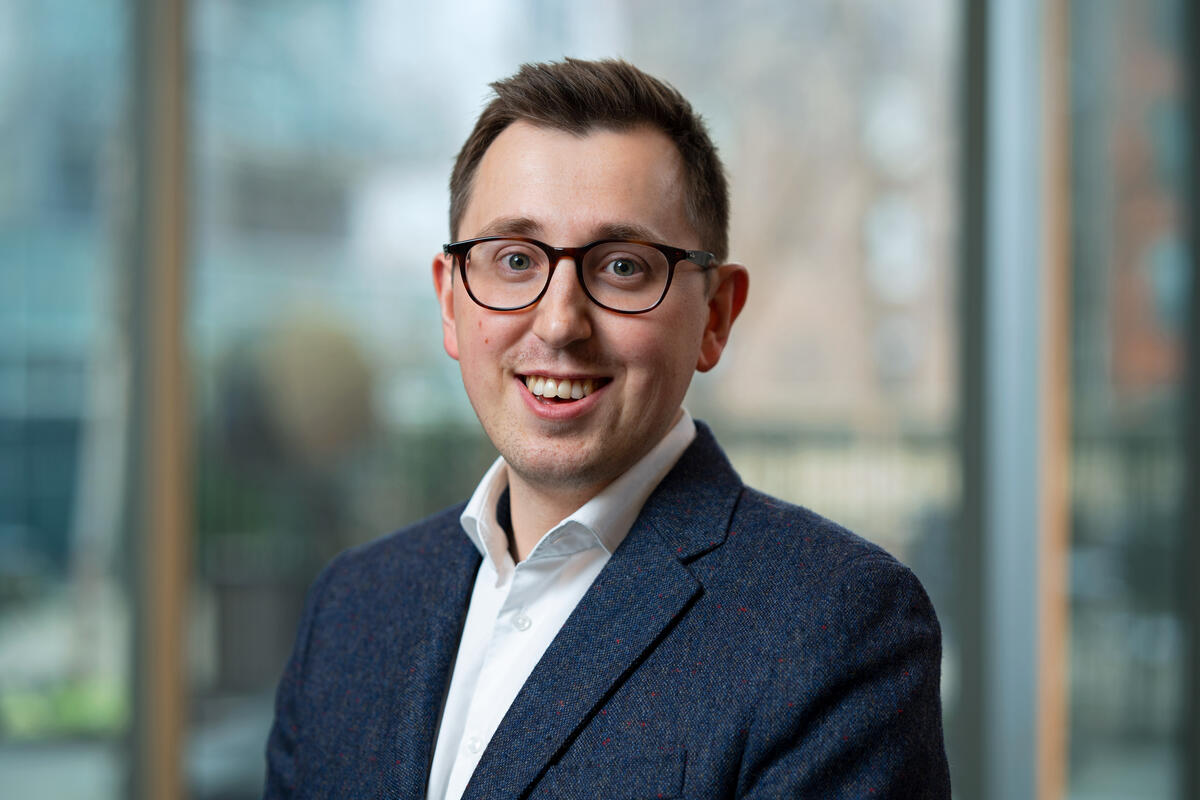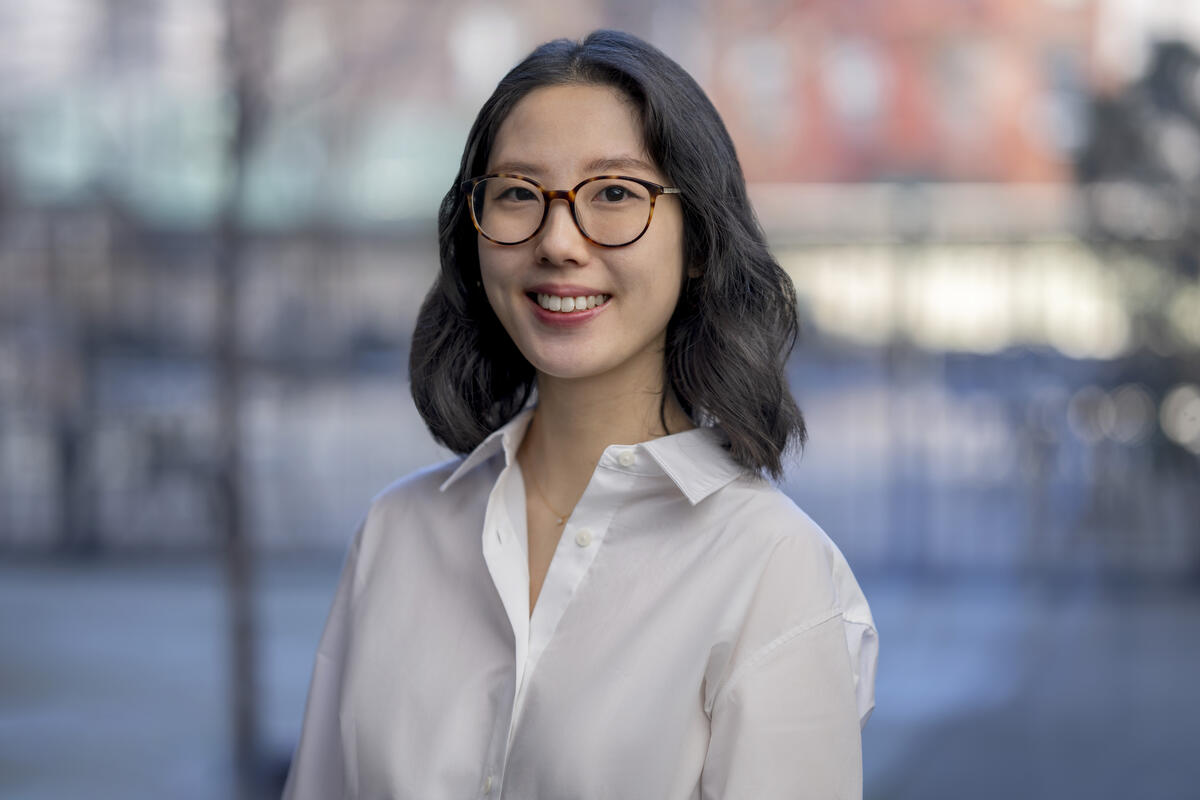
Abbas Jinia, PhD
2023-2025
Dr. Jinia obtained a Master’s degree in Nuclear Engineering from Purdue University and a PhD in Nuclear Engineering and Radiological Sciences from the University of Michigan. During graduate school, Dr. Jinia researched the application of machine learning algorithms for digital processing of scintillation pulses.
In 2023, Dr. Jinia joined Memorial Sloan Kettering Cancer Center as a postdoctoral researcher and is currently working on developing an Artificial Intelligence-based Incident Learning System. This system analyzes safety- and quality-related events reported by clinicians in the Department of Medical Physics using large language models. By automating the analysis, this system aims to identify hard-to-discern data trends in large datasets, with the ultimate goal of improving safety and quality in radiation treatment.
Xinan Chen, PhD
2023 - 2025
Xinan Chen earned her BS degree in Mathematics from University of Science and Technology of China in 2017. Advised by Dr. Allen Tannenbaum and Dr. Helene Benveniste, Xinan received her PhD degree in Applied Mathematics from Stony Brook University in 2022, where she applied the theory of optimal mass transport (OMT) into the dynamic contrast-enhance MRI (DCE-MRI) data of rat brains to quantitatively measure and visualize brain fluid dynamics.
Since joining Memorial Sloan Kettering in late 2022, Xinan is working with Dr. Joseph Deasy on developing and applying new OMT-based mathematical models into DCE-MRI of breast cancer and glioblastoma to quantify the microenvironment of tumors.
Bohong Huang, PhD
2024-2026
Bohong Huang’s current research project, titled “Deep Learning Empowered Target Decomposition Technique for Markerless Intrafraction Motion Monitoring,” aims to address the critical challenge of tracking tumor motion during radiation therapy. Tumor movement caused by respiration or patient motion can compromise the precision of radiation delivery, and conventional linear accelerator platforms with onboard Kilo-voltage(KV)imaging systems lack the capability to resolve tumor visibility in the projection domain due to superimposed anatomical structures. To overcome this limitation, she is developing a novel target decomposition technique using deep learning models, including a population-based conditional generative adversarial network (cGAN) with patient-specific adaptations. This method enhances tumor visibility on KV projection images, enabling real-time monitoring of lung tumors for stereotactic body radiation therapy (SBRT).
She is also implementing a patch-based diffusion model to achieve sparse view or short arc-based Cone Beam Computed Tomography (CBCT)image reconstruction. This innovation facilitates nearly real-time volumetric CBCT imaging, allowing for markerless tumor tracking in treatment sites such as the spine and prostate. These advanced techniques are validated on large-scale patient datasets under a clinical IRB protocol, with statistical analysis to ensure their robustness and clinical applicability. By integrating deep learning and diffusion-based methods, my work contributes to advancing markerless tumor motion monitoring, improving the precision and efficiency of radiotherapy treatments, and ultimately enhancing patient outcomes.
Her field of interest lies at the intersection of medical imaging, AI-driven innovation, and clinical radiotherapy applications. I am particularly focused on implementing cutting-edge algorithms to process and analyze large imaging datasets, enabling the development of robust, interpretable, and scalable solutions. Through close collaboration with clinical teams, her work emphasizes the translation of novel AI techniques, such as diffusion-based methods, into real-world radiotherapy workflows to optimize patient care.
Clinical Phase Residents

Songye Cui, PhD
2023-2025
Songye Cui graduated from the Laval University with a PhD degree in medical physics, and his thesis focused on development of Multi-Criteria Optimization treatment planning algorithms in High Dose Rate (HDR) brachytherapy.
Dr. Cui joined the Memorial Sloan Kettering Cancer Center Medical Physics Residency program in November 2021.
He has conducted Surface Guided Radiation Therapy related research under the supervision of Laura Cervino and Anyi Li.

Sudharsan Madhavan, PhD
2023 - 2025
Sudharsan Madhavan is a therapeutic medical physics resident at Memorial Sloan Kettering Cancer Center, where his research focuses on developing deep learning methods for MRI-guided prostate radiotherapy, including deformable registration, dose accumulation, and outcomes modeling.
Previously as a postdoc, he applied voxel-based machine learning to identify anatomic subregions predictive of radiation toxicity in head and neck cancer patients. His interdisciplinary training spans medical physics, biomedical engineering, and cardiovascular biomechanics. He aspires to advance AI-driven personalized radiotherapy as an independent investigator someday.

Sebastian Meyer, PhD
2023-2025
Dr. Sebastian Meyer received his PhD from the Ludwig-Maximilians Universität München in Munich, Germany, in 2019. His research investigated the clinical potential of tomographic imaging with highly energetic ion beams for proton therapy treatment planning.
Afterwards he worked on phase-sensitive x-ray imaging as a postdoctoral researcher at the University of Pennsylvania.
In July 2021, Dr. Meyer joined the MSK residency program, where he is currently working on deformable dose accumulation and re-irradiation.
Paulo Mejia Quintero, PhD
2023–2025
Paulo holds a Bachelor’s degree in Engineering Physics and a Master’s degree in Medical Physics from the Universidad Nacional de Colombia, along with a Master’s in Advanced Physical Methods in Radiotherapy from the Heidelberg University in Germany and a PhD in Physics from the University of Hull in England. Besides his eight years in clinical radiotherapy, his early research focused on radiobiology, evaluating the survival and hypoxia effects in irradiated tumoral cells. Later, he designed and validated a 3D-printed phantom for patient-specific quality assurance (PSQA) in radiosurgery, integrating simultaneous dosimetric tools such as pinpoint ionization chambers, microDiamond detectors, and Gafchromic films.
During his PhD, Paulo explored the modulation complexity metrics of single and dual-layer multi-leaf collimators (MLC), employing machine learning techniques to correlate these metrics with treatment quality metrics like gamma passing rates.
Paulo’s post-doctoral work at MSK (2023-2025) focused on AI-based methods for generating synthetic 3D and 4D MRI oriented to improve motion management strategies in radiotherapy. With a diverse background, Paulo is committed to advancing the field of medical physics and contributing to the future of radiotherapy.

Wei Zhao, PhD
2023-2025
Dr. Wei Zhao earned his PhD degree in Physics from the University of British Columbia in Vancouver, Canada. His PhD project focused on the development of a practical and accurate dosimetry protocol for efficient usage of radiopharmaceuticals in the treatment of many types of metastatic cancers with clinical targeted radionuclide therapies.
He joined the Memorial Sloan Kettering Cancer Center Medical Physics Residency program in 2021. His research is centered on incorporating multimodal imaging data to understand and predict tumor control in radiotherapy.

Irene Zhang, PhD
2025-2027
Irene Zhang is a first-year resident in the therapy track. She joined Memorial Sloan Kettering in 2022 as a postdoctoral researcher in the Medical Physics 2+2 program.
At MSK, she has worked on dosimetric modeling for Diffusing Alpha-Emitters Radiation Therapy (DaRT), a novel brachytherapy technique, and on developing a post-assembly quality assurance system for COMS eye plaques.
She obtained her PhD in Applied Physics from Stanford University.